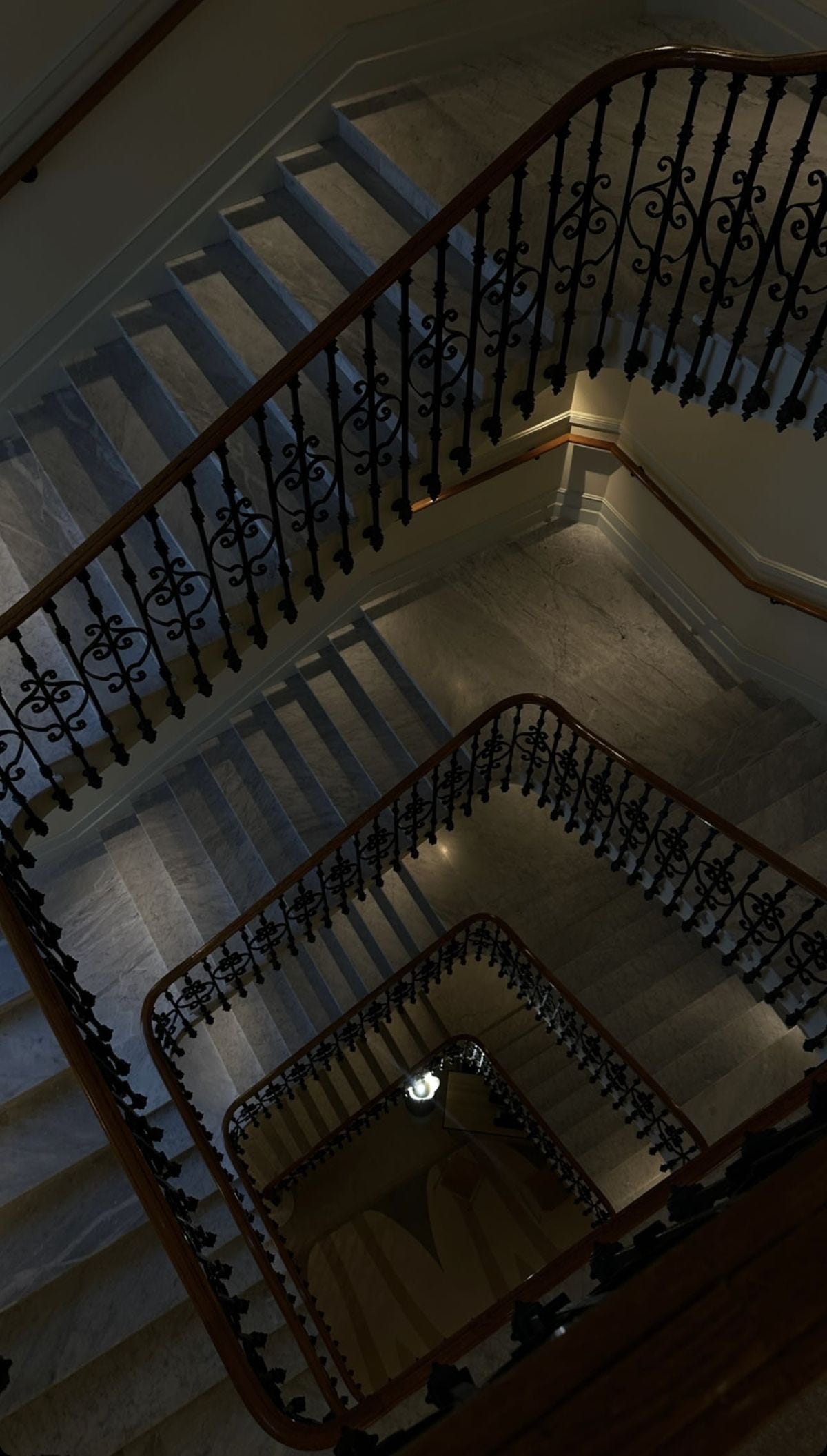September 28th, 2025
Hello my love,
Introverts aren’t antisocial; they’re simply selectively social. I’ve struggled with the imposter syndrome of being mistaken for an extrovert my whole life. Why? I’m sociable and can hold conversation, a habit of reading makes one conversational. No one knows that an hour after a social event, my back hurts, I’m replaying the awkward moment where I laughed at something that probably wasn’t a joke and I feel deeply deserving of a three-week trip to the Maldives. The latter is a bit far-fetched so I settle for a couple days of solitude. What can I do? If I admitted that my mind was really with the half-eaten croissant and half-read copy of “The Brothers Karamazov” I left at home, they’d probably label me a psychotic recluse.
But here’s the tea: faking extroversion isn’t lying. It’s survival. It’s theatre. The performance begins the moment you step into the room, your smile a little brighter, your laugh half an octave higher. You aren’t “betraying” yourself; you’re borrowing another self. And like all good theatre, the act can be artful, brief, and even beautiful.
If you’re an introvert, this guide is in no way urging you to change yourself, it’s only a way to relieve you of the difficulty that sometimes accompanies socializing when you don’t want to but absolutely have to. A guide to teach you how to become a pseudo-extrovert , a faux extrovert, a sometimes necessary extrovert. Society still runs on extroverted currency: the louder, the bolder, the more magnetic you appear, the more people take you seriously and as humans we all must perform sometimes.
Here’s how to dazzle when the cameras are on.
Define success before you leave home
Most social dread is vagueness. Give the night a mission.
Pick two: meet one new person • ask about a project • congratulate the host • exchange one contact.
Set an energy budget (so you don’t crash)
Use the 90-Minute Window: one strong entrance block (45–60 min), short reset (10–15), optional second block (30–45).
If you’re done after one block, you’re done. Leaving at 8:40pm is not a crime chile.
Create a social persona
Pick a role for the night:
The Curious Editor (asks sharp questions),
The Warm Librarian (calm, steady, remembers names),
The Cheerful Reviewer (light, affirming, brief anecdotes).
Use Body Language as a Shortcut
Even if you say very little, good body language makes people assume you’re friendly and confident. Eye contact, an occasional nod, open posture. These cues do 80% of the work for you, that way if you’re not feeling chatty, your words can stay minimal.
Create an anchor so you don’t orbit anxiously
Choose one: a person, a spot, or a prop.
Person: the host’s friend who looks kind.
Spot: a corner near light or snacks.
Prop: a drink, a book in your tote, your camera.
Return to your anchor between chats. Intermissions are legal
Master the Art of Small talk
You don’t need to have dazzling anecdotes ready at all times. People love to talk about themselves just give them a prompt. “What are you reading?” “Wow finance! You must be really smart huh?”
Talk ratio: 70/20/10
70% ask → listen → reflect (“So you pivoted from law to influencing, was it scary or inevitable?”)
20% share a capsule story (something entertaining and related to the conversation ).
10% future touch (“Send me that article / I’ll DM you the author I mentioned.”)
People leave thinking you’re “great at conversation.” when you mostly listened.
Exit Gracefully
Leaving a room well is as much a skill as entering one. Extroverts often drift out mid-laugh, but introverts tend to overcompensate , apologizing, stammering, or vanishing like fugitives. The truth is: you don’t owe anyone a midnight encore. The key is to exit with a mix of warmth, clarity, and finality.
Cement connections within 24 hours
Send a light follow-up (DM/email):
“Loved your take on Dante’s work + that podcast rec. Here’s the novelist I mentioned. If you ever want a bookish café rec, I have a list.”
Attachment creates network.
Aftercare: return to yourself
Silence ritual: tea, shower, 20 pages of something tender.
Body reset: stretch hips/neck, legs up the wall, phone in airplane mode.
Reflection: write 3 lines. What worked? Who surprised me? What’s next time’s mission?
The romance of the mask
There’s something strangely literary about all this. Isn’t pretending to be extroverted the same as inhabiting a fictional character? Just as you annotate the margins of a novel, you can annotate your own presence. Add flourishes. Circle the lines that work. Strike through the ones that don’t.
The beauty is that when you fake extroversion, sometimes it stops being fake. The laughter you force becomes real. The conversation you dreaded becomes interesting. The performance melts into a moment. And then, quietly, you go home, shut your door, and exhale back into yourself.
You may not want the spotlight, but you still live in a world where connection matters. Faking extroversion is about making sure your inner world has a bridge to the outer one. Because sometimes opportunity looks like a loud room, a crowded table, or a stranger waiting to be asked a question.
And when you’re tired, when the mask feels too heavy, you can always put it down. Your silence is not emptiness, it’s recovery.
So fake it, just long enough to pass. Long enough to charm a stranger, make a friend, leave a mark. Extroversion can be borrowed like a dress, worn to the party, and slipped off at the end of the night.
Because at the end of the day, you’re not an extrovert. You’re something rarer. You’re someone who can slip between selves,quiet and loud, observer and performer, reader and actor. And that, my love, is a kind of magic all its own.
With love always,
Amira
If these letters resonate, consider becoming a paid subscriber, for deeper essays, book club content, and to help keep this space soft and independent. Join here 💌







A guide for the “socially drained” this was written for me
I can't agree with you more, I really do hate it when people confuse introversion with shyness or social anxiety, they’re really not the same thing at all. Being introverted doesn’t mean you’re scared of people or awkward in social settings; it just means you feel most at ease, and actually recharge, in quieter spaces or on your own. Shyness and social anxiety are more about fear or discomfort around others, which is completely distinct. Mixing them up makes it sound like all these experiences are one and the same, when in fact they’re very different. Love to all the shy, introverted, asocial, and socially anxious people out there.♥